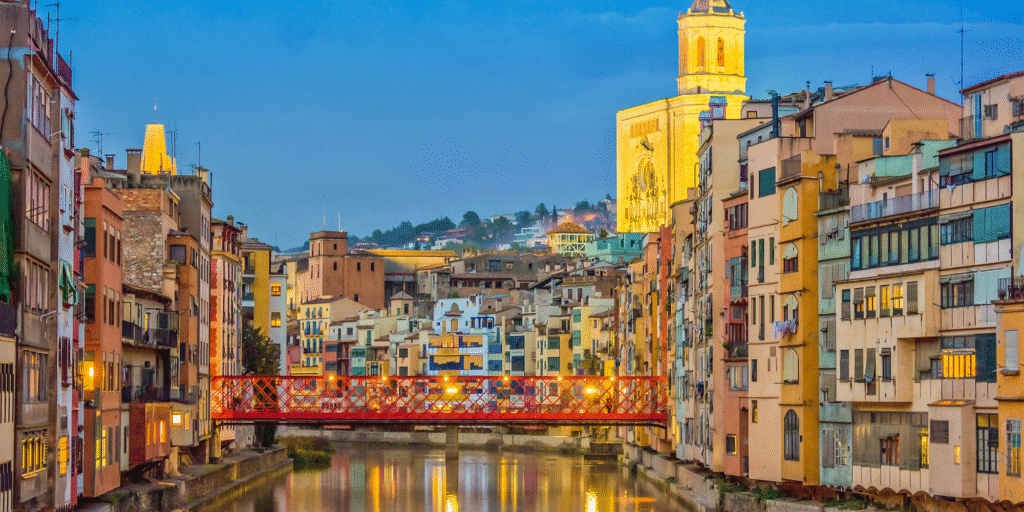Living in Spain is a dream shared by digital nomads, retirees, freelancers, students, and families alike. Whether you’re drawn by the sunshine, the food, or the laid-back Mediterranean lifestyle, there’s no denying Spain’s charm.

But before you move, it’s crucial to understand the practical side of expat life: visas, budgets, healthcare, and cultural quirks. This guide breaks down what you must know before moving to Spain.
1. Cost of Living in Spain
Spain offers a relatively low cost of living compared to many Western countries.
| Expense Category | Monthly Estimate (€) |
|---|---|
| Rent (1-bed in city) | € 600–1,200 |
| Groceries (1 person) | € 150–250 |
| Dining out | € 10–15 per meal |
| Public transport | € 30–60 |
| Health insurance (private) | € 50–100 |
For example, Valencia, Granada, and Seville are significantly more affordable than Madrid or Barcelona. However, even Spain’s biggest cities remain cheaper than London, Paris, or New York.
Real-time housing listings across Spain:
🔗 Idealista – Spain’s Largest Property Search Platform

2. Healthcare System
Spain has both public and private healthcare systems—both known for quality and accessibility.
- Public healthcare is available to residents via the social security system.
- Private insurance is required for most visa applicants and offers shorter wait times.
📌 Most visa applicants (except students) must show proof of private insurance with no copays.
Public health insurance and services in Spain:
🔗 Spain’s National Health System – Ministry of Health
3. Where Should You Live?
Spain offers a diverse range of cities, from bustling capitals to quiet mountain towns. Here’s a comparison of lifestyle, ideal expat type, and average monthly costs:
| City/Region | Lifestyle | Best For | Monthly Rent (1-bed) | Monthly Cost of Living (1 person) |
|---|---|---|---|---|
| Madrid | Cosmopolitan, dynamic | Young professionals | €900–€1,300 | €1,500–€2,200 |
| Valencia | Balanced, coastal | Families, digital nomads | €700–€1,000 | €1,200–€1,800 |
| Granada | Traditional, affordable | Students, retirees | €450–€700 | €900–€1,400 |
| Málaga | Sunny, expat-friendly | Remote workers | €650–€900 | €1,200–€1,700 |
| Bilbao | Green, modern | Entrepreneurs, creatives | €750–€1,000 | €1,300–€1,900 |
| Ronda | Scenic, historic | Artists, writers, slow-living seekers | €400–€600 | €850–€1,300 |
| León | Underrated, traditional | Retirees, language learners, solo expats | €450–€650 | €900–€1,400 |
📌 Ronda and León smaller cities don’t offer the big-city nightlife or extensive coworking scene—but they do provide a peaceful, authentic, and cost-effective way to live in Spain.
💡 Notes:
- Prices include rent, groceries, utilities, transport, and basic lifestyle spending.
- Shared accommodations or rentals outside city centers can significantly reduce costs.
- Granada and Valencia are known for offering high quality of life at a lower cost.
📍 Looking for a starter city? Valencia and Málaga consistently rank high for expats and digital nomads due to their affordability, weather, and lifestyle.
4. Visa & Residency Options (Updated 2025)
As a non-EU citizen, you’ll need a legal residence visa. Here are some of the most popular options:
🧑💻 Digital Nomad Visa (Launched 2023)
For remote workers or freelancers working for non-Spanish companies.
💰 Requires ~€2,763/month income + private health insurance
📍 See full process: How to Apply for the Digital Nomad Visa in Spain
💰 Non-Lucrative Visa (Retirees/Passive Income)
For those not working, but with stable income or savings.
💰 Requires €2,400/month (400% IPREM) + €7,500/year per dependent
📍 Full requirements: Spain’s Non-Lucrative Visa Requirements
🎓 Student Visa
For language learners or university students.
✔️ Allows part-time work and is renewable annually
👨👩👧 Family Reunification Visa
For spouses, dependent children, and elderly parents of Spanish residents.
For all visa types, consult the official site:
🔗 Spain Immigration Portal – Ministry of Inclusion
📋 5. Before You Move: Prep Checklist
✅ Book your visa appointment early (slots fill fast)
✅ Translate documents via sworn translator (traductor jurado)
✅ Research housing options (try Idealista or Spotahome)
✅ Purchase health insurance with no copays
✅ Apply for your NIE (foreigner ID) upon arrival
✅ Register at your local town hall
✅ Open a local bank account
🧠 6. Cultural Tips & Everyday Life
- 🕒 Many shops close between 2–5 PM for siesta
- 🍽️ Dinner is typically after 9 PM
- 🛍️ Sundays are quiet—many stores are closed
- 💬 Even basic Spanish goes a long way
- 🏦 Bureaucracy can be slow—bring patience
📚 Learn key phrases: Essential Spanish Phrases for Expats
📸 Suggested Images & Alt Texts:
- Remote worker at a café in Valencia – alt: Digital nomad working remotely in Spain
- Scenic view of Granada’s old town – alt: Affordable living for expats in Granada
- Clinic sign in Madrid – alt: Healthcare in Spain for residents and expats
✨ Final Thoughts: Make the Move, the Right Way
Living in Spain offers sunshine, culture, and an enviable pace of life—but success starts with solid planning. From visa types to cultural norms, this guide gives you the foundation to move smart and live fully.
📌 Save this guide, share it with your partner or relocation group, and take the first step toward your new life under the Spanish sun.

Pingback: How to Apply for the Digital Nomad Visa in Spain - sayitinspanish.org
Pingback: Spain Visa Guide 2025: All Major Visas Explained - sayitinspanish.org